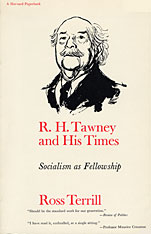
“The Holocaust…was beyond the belief and comprehension of almost all people living at the time… [It] was a notion so alien to the human mind, and even so gruesome, so new, that the instinctive, indeed the natural reaction, of most people was: ‘It can’t be true.’” Thus writes the Netherlands’ preeminent historian in this memoir and account of war and genocide. Concentrating on three central topics—the Holocaust, the resistance, and the leadership of Queen Wilhelmina—Louis de Jong recaptures the wartime experience of Holland and explains some of the more anomalous happenings.
The swift, devastating conquest of the Netherlands by the Nazis made possible three appalling weapons of control over the Dutch: fear, the dividing of people, and deception. Intending to absorb Holland into the German empire, the Nazis planned to exploit the country economically, purge it of Jews, and prevent any assistance to the Allies. They succeeded only too well. The Dutch provided substantial economic support to the Nazis, though they did so to keep men employed at home rather than being sent to work in Germany. Although the Jewish Council, which cooperated with the Nazis, assisted in the deportation of thousands of Jews to concentration camps, such zealousness reflected the innocence of an assimilated people in the face of a hitherto unexperienced, virulent antisemitism.
It was almost inconceivable that a resistance movement could operate in flat open country; nevertheless there was such a movement. De Jong recaptures a terrible time and the grim fate of a nation accustomed to centuries of peace and suddenly plunged into the Nazis’ obscene war.

Economic historian, democratic socialist, educator, and British labor party activist, R. H. Tawney touched many worlds. His life, too, spanned great distance and change. When he was born in Calcutta in 1880, Gladstone, Tennyson, and Queen Victoria were flourishing and the British Empire was approaching its height. By the time of his death in 1962, the Empire had shrunk to a few tourist islands, and socialism, once so shocking, was now commonplace.
Ross Terrill, in this absorbing first study of Tawney’s thought, view his subject within three related contexts. The first is Tawney, the man. Terrill makes skillful use of unpublished material—the early diary, speech and lecture notes, letters, interviews with friends and associates—to tell the story of Tawney’s life in relation to his times. Second is social democracy. Tawney was one of its most influential philosophers and prophets, and this book argues for the continuing validity of his socialism as a path between capitalism and communism. Third is British politics. From Edwardian liberal “consensus” to mid-century collectivist “consensus,” Tawney’s long career, often at odds with prevailing orthodoxies, offers a window on British political culture.
Four key ideas are found in Tawney’s political thought: equality and the dispersion of power—the “shape of socialism”; function and citizenship—the “life of socialism.” These ideas, and indeed the life of the man himself, Terrill believes, are summed up in socialism as fellowship. “As long as men are men,” Tawney said, “a poor society cannot be too poor to find a right order of life, nor a rich society too rich to have need to seek it.”
This book is a blend of biography, history, and the study of political ideas. It provides a striking portrait of a remarkable man and a panorama of changing ideas and situations in the society where he tried to realize his socialist vision. It offers many glimpses of Tawney’s associates, among them Beveridge, the Webbs, Laski, A. P. Wadsworth, Temple, Margaret Cole, and Leonard Woolf; and surprising snippets, like the fact that Tawney used the phrase “private affluence and public squalor” in 1919.
READERS
Browse our collection.
PUBLISHERS
See BiblioVault's publisher services.
STUDENT SERVICES
Files for college accessibility offices.
UChicago Accessibility Resources
home | accessibility | search | about | contact us
BiblioVault ® 2001 - 2024
The University of Chicago Press









